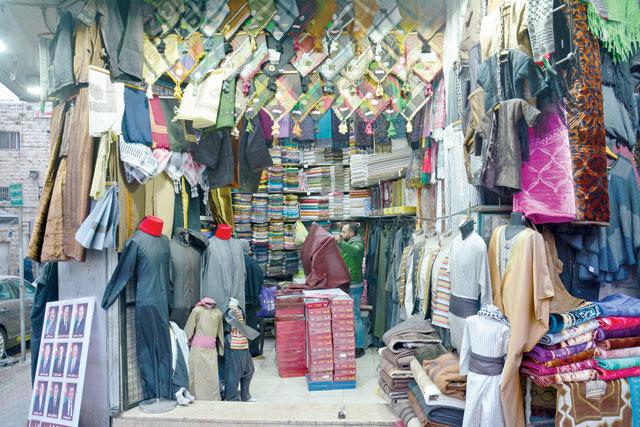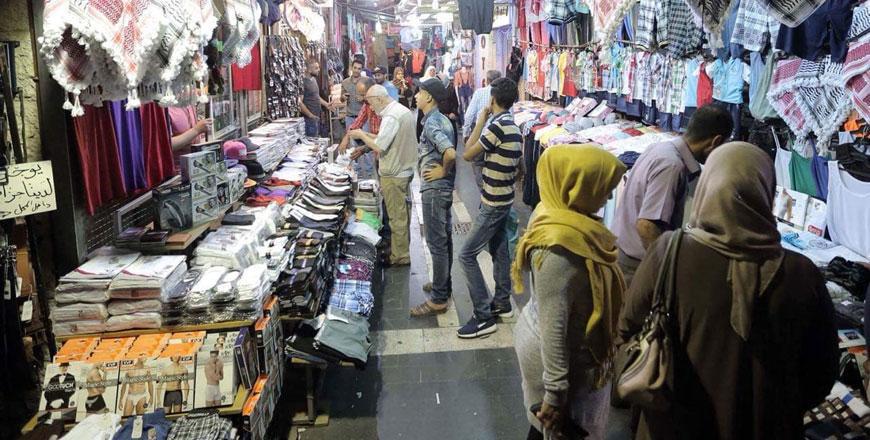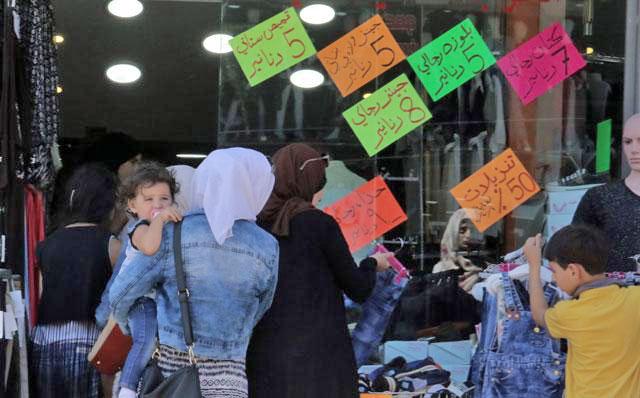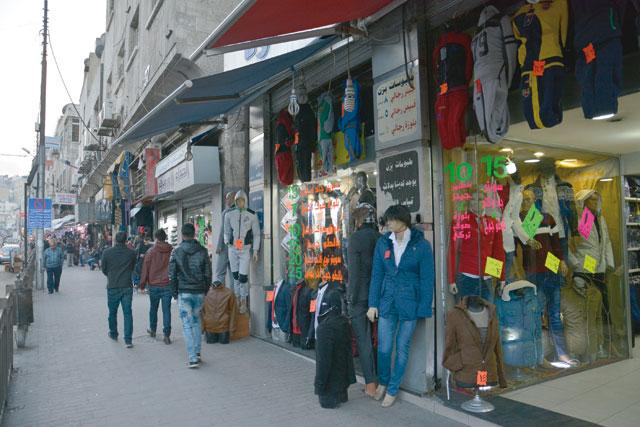You are here
Bankruptcy in clothing sector signals urgent need for tax cuts — syndicate
By Bahaa Al Deen Al Nawas - Oct 17,2019 - Last updated at Oct 17,2019

The Textile and Readymade Clothes Syndicate has called on the government to reduce the sales tax to save the struggling sector (Photo by Amjad Ghsoun)
AMMAN — Many clothing and footwear shops have gone bankrupt in September and October, and in response, the government should urgently reduce sales tax from 16 per cent to 8 per cent, President of the Textile and Readymade Clothes Syndicate Muneer Deyeh said on Thursday.
“Sales tax is indirect; imposed on the poor and the rich at the same rate, and 74 per cent of the government’s revenues come from this tax while only 24 per cent comes from income tax,” Deyeh told The Jordan Times over the phone.
The association on Wednesday issued a statement urging the government to reduce the 16-per cent sales tax, one of the highest rates worldwide, according to Deyeh.
“During the discussion of the Income Tax Law with the current government, there was an acknowledgment that there is a problem with the structure of the tax system, and the burdens of those taxes,” the association president said, adding that the government also confirmed that indirect taxes are “currently unjust” and must be amended.
“Thus, they promised to reconsider the Sales Tax Law in order to amend the rates and reduce burdens, following in the footsteps of other countries around the world, by fixing the tax system in the Kingdom. However, a year has passed since endorsing the Income Tax Law, and the government has not provided any solutions,” Deyeh explained.
“Now, as a result, there is great regression in the markets, impacting most sectors in the country,” he added.
The association believes that reducing sales tax will help revitalise the market and improve people’s purchase abilities, serving as an important tool to boost cash flow, which Deyeh said benefits all parties, including the Treasury.
“Reducing the sales tax does not mean the government’s revenues will decrease; on the contrary, it means that the cash flow in the market will increase, improving the economy, and thus boosting the Gross Domestic Product,” he said.
The current sales tax rate makes it difficult for a large segment of society to purchase even basic necessities, which is why action needs to be taken immediately, Deyeh said.
“Lowering the sales tax rate to 8 per cent would make other taxes and fees bearable, and traders and people would feel the reduction at once, as the tax is paid upon importation and upon sale,” Deyeh said.
“We need to take important steps to bring the most vital sectors in the Kingdom back on their feet before more merchants and traders from different sectors go bankrupt as well,” he concluded.
Related Articles
AMMAN — The Textile and Readymade Clothes Syndicate has called on the government to reduce taxes and customs on children's clothes and shoes
AMMAN — Despite an annual uptick in clothing sales during the upcoming Eid Al Adha holiday, the Textile and Readymade Clothes Syndicate on S
AMMAN — The Textile and Readymade Clothes Syndicate has called on the government to take “bold decisions” to strengthen the sector in light



















